Shows
Shows to See in New Delhi, February 2025
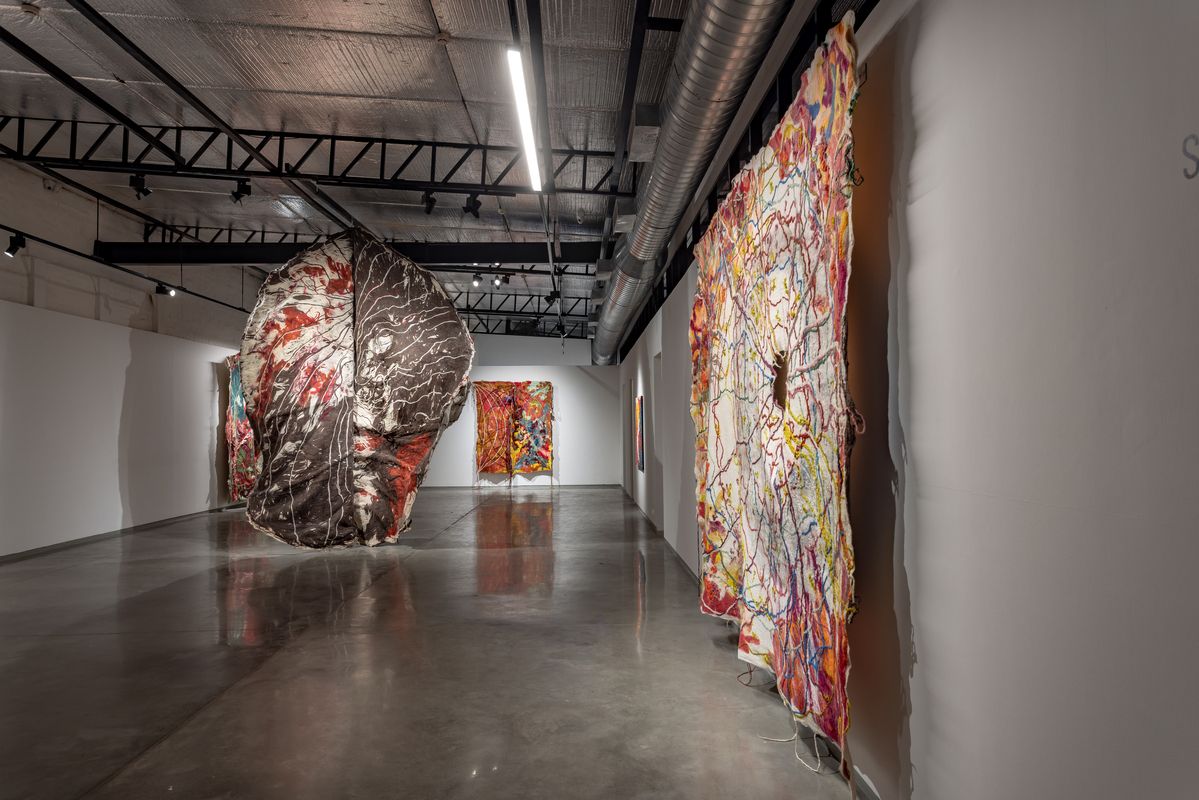
From February 6–9, India Art Fair (IAF) returns for its 16th iteration, featuring a record 118 exhibitors—including 78 galleries and major institutions from South Asia and beyond—at New Delhi’s NSIC Exhibition Grounds. Its most ambitious edition to date, this year’s event offers a citywide program with several highlights, such as an outdoor site-specific LED installation by Italian British artist duo Claire Fontaine based on their acclaimed series Foreigners Everywhere (2004– ); a major retrospective of Indian painter and poet Gulam Mohammed Sheikh at the Kiran Nadar Museum of Art; and a solo exhibition by Mumbai-based conceptual artist Shilpa Gupta at Bikaner House.
Beyond the bustling fair grounds, a number of commercial galleries in the Indian capital are mounting their most significant presentations of the year to coincide with IAF. Here’s a look at shows to see from AAP’s editors.
Jan 17–Feb 23
Sagarika Sundaram
Polyphony
Nature Morte
Drawing on the spontaneity of musical improvisation, New York-based artist Sagarika Sundaram transforms raw wool fiber into monumental felt sculptures through an intuitive, labor-intensive process. In “Polyphony,” her first solo exhibition in India, Sundaram presents her giant circular textile work Source (2022) alongside several wall pieces, including new glass mosaics that echo her early experiences with the batik technique—a wax-resist dyeing method popular in Southeast Asia.
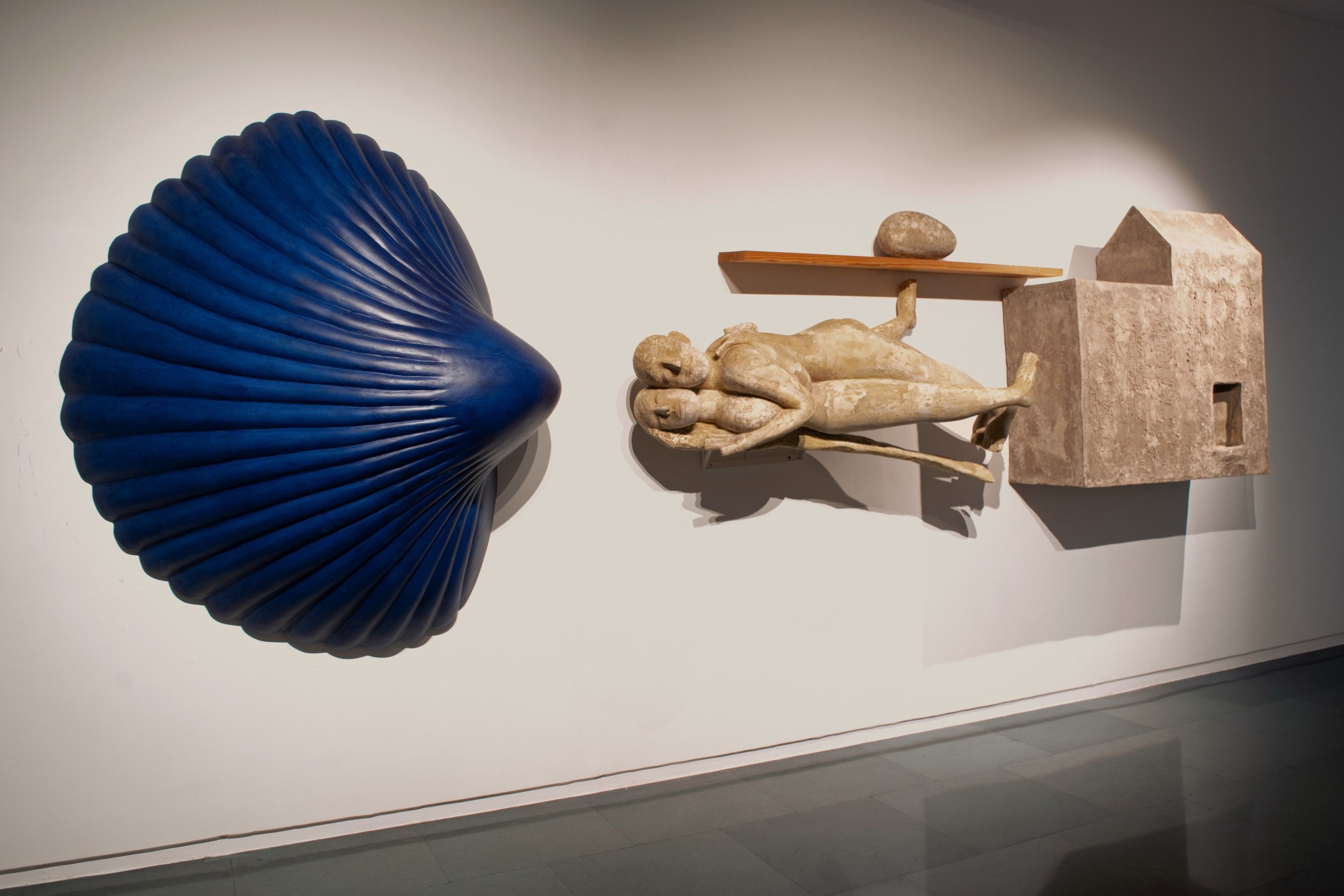
NN RIMZON, Yellow Psalms, 1991, fiberglass, acrylic, and wood, 173 × 462 × 66 cm. Courtesy Talwar Gallery, New York/New Delhi.
Feb 5–May 31
NN Rimzon
It Is Your Turn
Talwar Gallery
Interweaving found objects, bronze forms, and metaphysical questions, NN Rimzon presents four decades of his practice through sculptures, paintings, and works on paper in his solo exhibition “It Is Your Turn” at Talwar Gallery. Highlighted projects include Yellow Psalms (1991), a four-part wall configuration of a blue shell, a house-like structure, an egg-shaped form, and an embracing couple, and his new installation Vessel for the blue (2025) that draws on Ayurveda—an ancient Indian medicine system—with bronze steps leading to an herb-filled immersion tank. Through a quiet interplay between the exposed and the hidden, Rimzon creates charged environments that blur cultural, religious, and temporal boundaries.
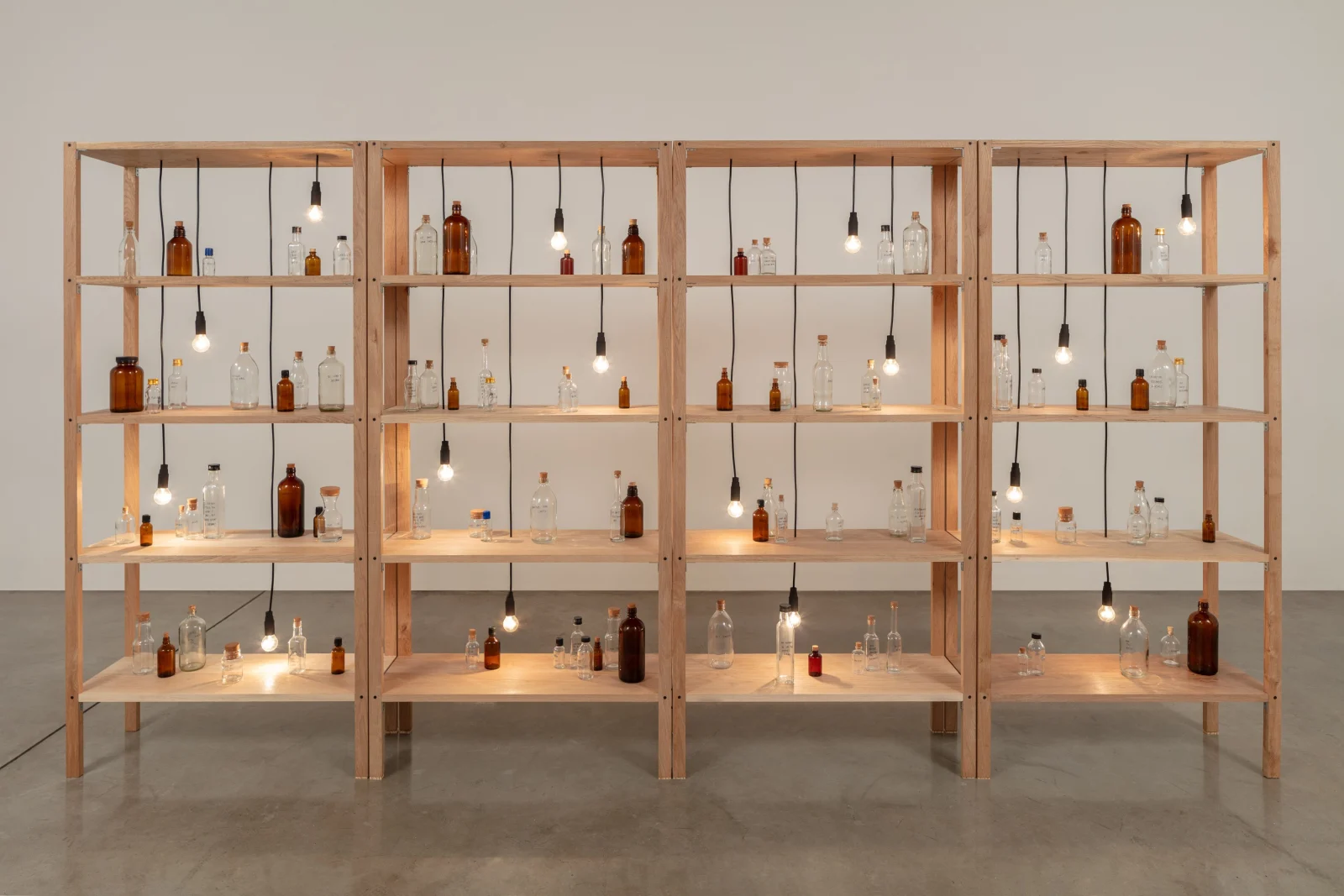
Installation view of SHILPA GUPTA’s Untitled (Spoken Poem in a Bottle), 2018-, bottles, vitrines, and bulbs, 82.5 × 30.5 × 174 cm, set of four. Courtesy Vadehra Art Gallery, New Delhi.
Feb 2–14
Shilpa Gupta
Vadehra Art Gallery
Shilpa Gupta’s practice investigates the social and psychological boundaries of public life in India, foregrounding the contradictions, conflicts, and power dynamics between the nation state and the individual. Gupta’s solo exhibition at Vadehra Art Gallery reflects the diversity of her practice, showcasing a series of works across installation, sculpture, photography, sound, and drawing. By reassembling various items—such as river stones and motor parts—beyond their recognizable form and expected function, she invites the audience to reappraise the cultural meaning of materials and objects.
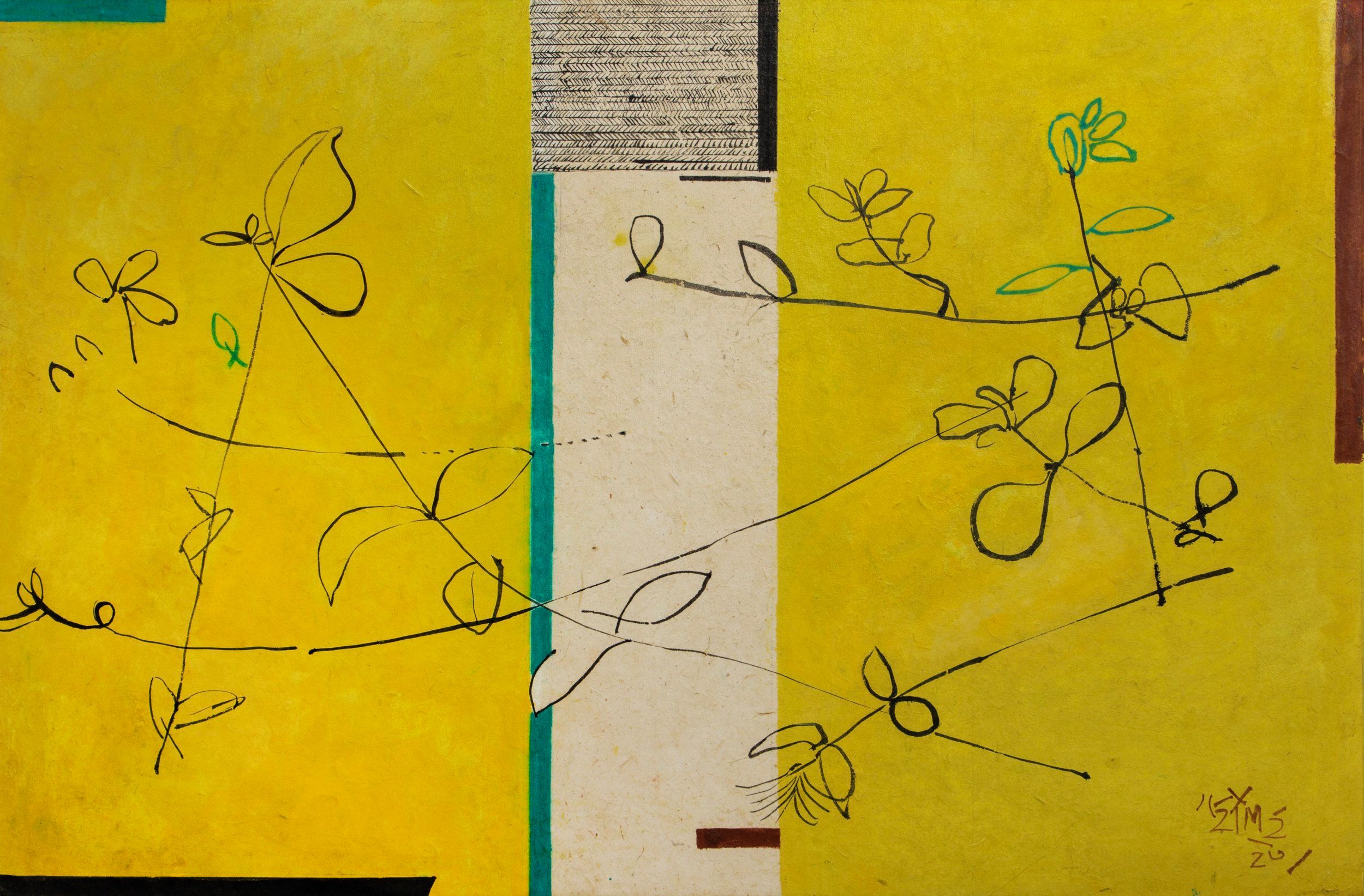
GANESH HALOI, Untitled, 2023, gouache on Nepali paper laid on board, 53 × 79 cm. Courtesy Akar Prakar, New Delhi/Kolkata.
Feb 6–Mar 7
Ganesh Haloi
Figure-ing Out: The Ajanta & Now
Akar Prakar
During the 1950s and ’60s, Ganesh Haloi documented Buddhist Jataka stories on the deteriorating murals at the historic Ajanta caves in western and central India. A series of his drawings and preliminary sketches from this period are on view in his solo show “Figure-ing Out: The Ajanta & Now” at Akar Prakar gallery. Presented alongside his recent works—colorful, non-representational paintings—the exhibition traces the decades-long evolution of Haloi’s practice.
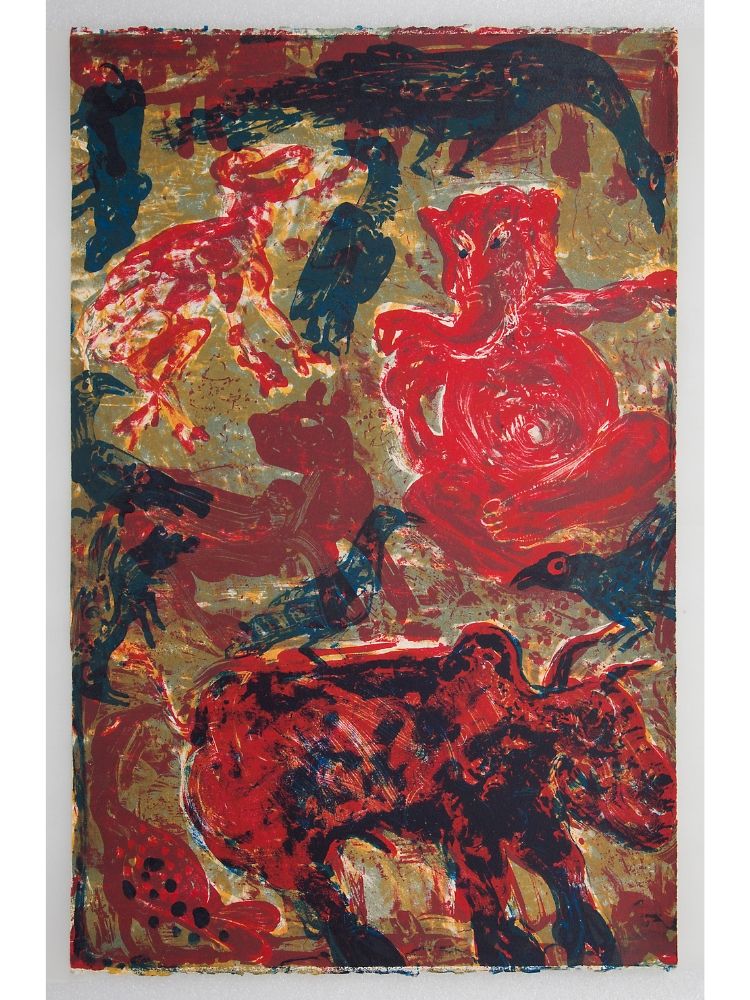
DEVRAJ DAKOJI, Pranamu, 1993, color lithograph, 56 × 38 cm. Courtesy the artist and Exhibit 320, New Delhi.
Jan 3–Mar 8
Devraj Dakoj
Signed, Lower Right: Devraj Dakoji – The Making of a Master Printmaker
Exhibit 320
Surveying five decades of Devraj Dakoji’s practice, “Signed, Lower Right: Devraj Dakoji” at Exhibit 320 showcases a series of prints charting the creative journey of a “master printer.” Dakoji uses mythic spiritualism and technical expertise to transform the medium of printmaking, channeling cosmic energies through his use of color, form, and figuration. At the core of his practice is the concept of pranamu, a Telugu word which translates as a “life-force of the world.”
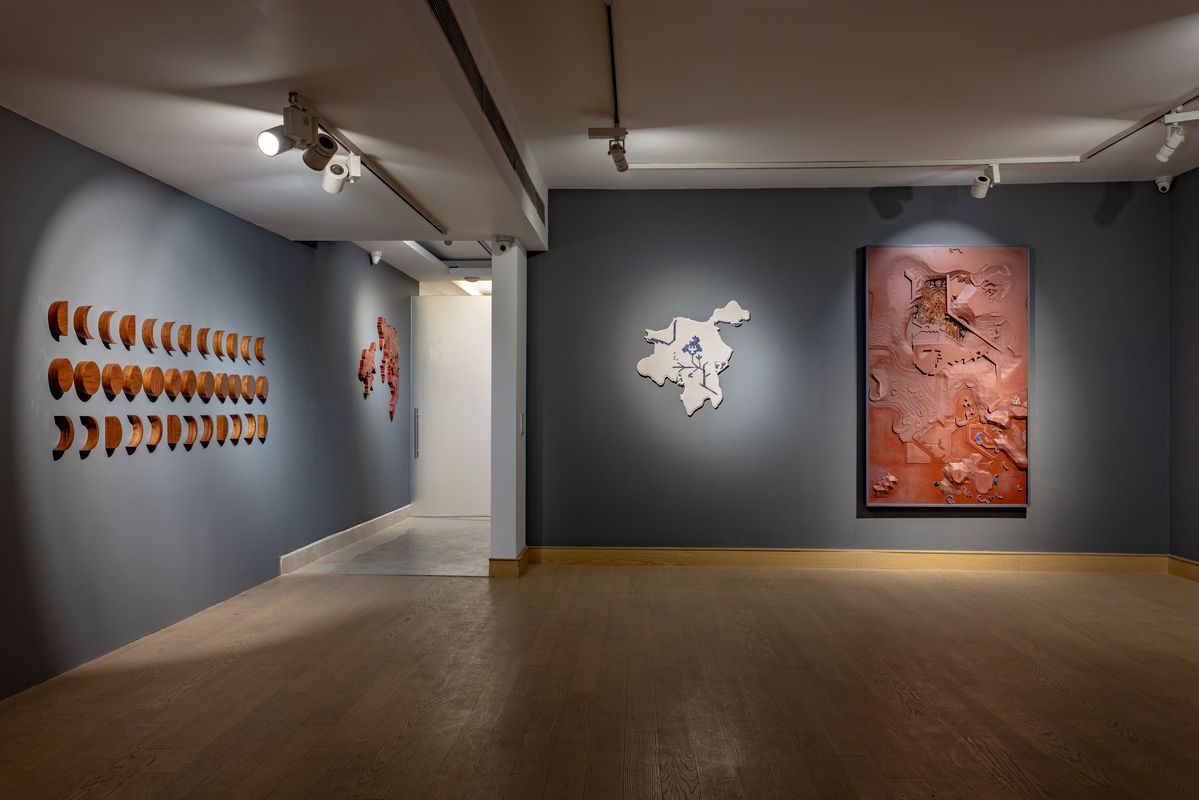
Installation view of REMEN CHOPRA W. VAN DER VAART’s "Aurum Lazuli" at Nature Morte, New Delhi, 2025. Courtesy Nature Morte, New Delhi/Mumbai.
Jan 11–Feb 15
Remen Chopra W. Van Der Vaart
Aurum Lazuli
Nature Morte
In “Aurum Lazuli” at Nature Morte, New Delhi-born multidisciplinary artist Remen Chopra W. Van Der Vaart explores themes of permanence, transformation, and cultural heritage through the symbolism of gold and lapis lazuli. Inspired by her grandmother’s Persian and Afghani carpets, she reimagines the intricate geometric patterns as living maps of memory. Through a diverse range of materials including sandstone, recycled wood, and cement, Remen reconstructs personal histories of cities like Rawalpindi and Shimla into abstract landscapes, where memory and geography intertwine.
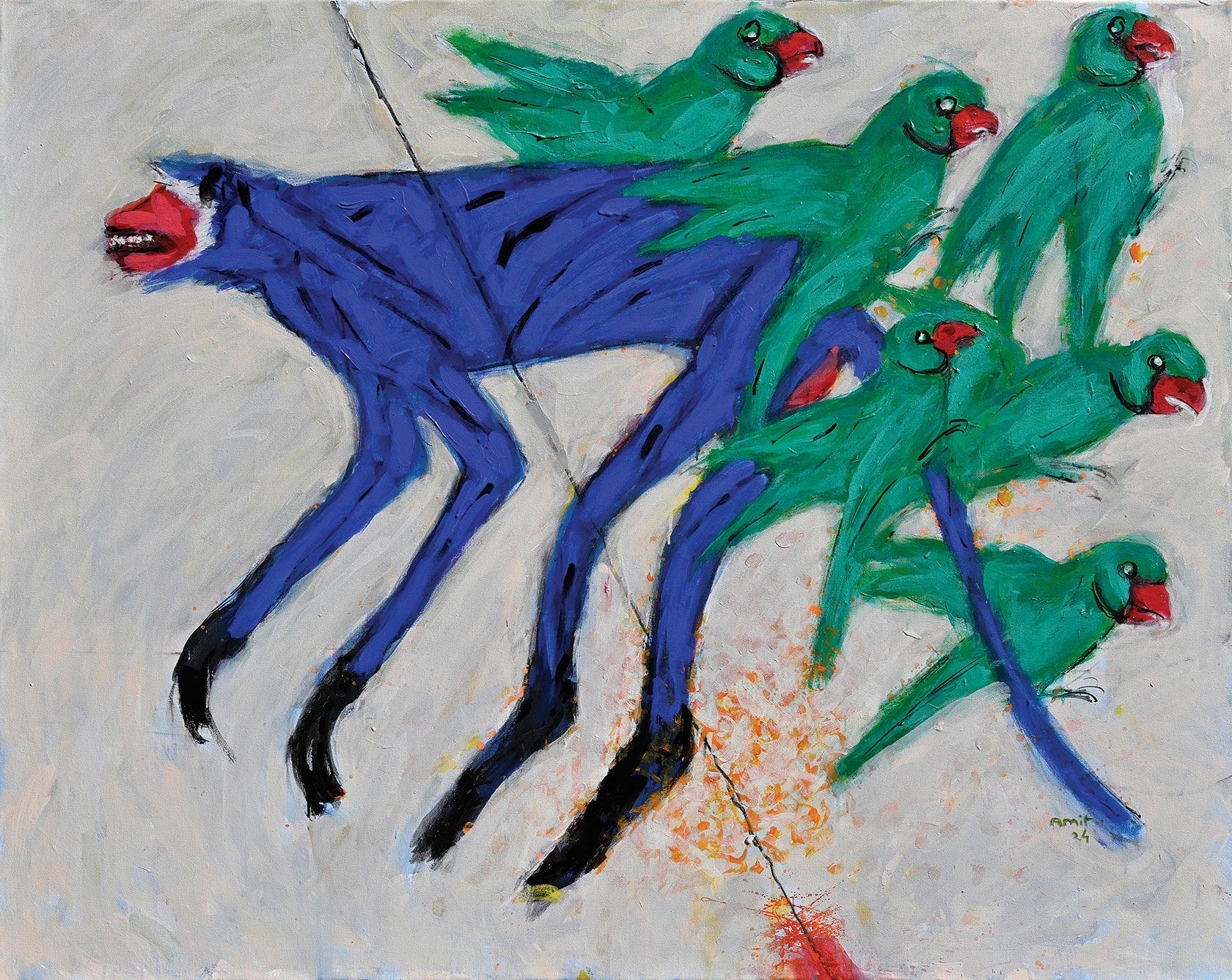
AMIT AMBALAL, Wham, 2024, acrylic on canvas, 122 × 152 cm. Courtesy Gallery Espace, New Delhi.
Jan 24–Mar 1
Amit Ambalal
In The Garden of Sumeru
Gallery Espace
Parrots, blue monkeys, and bees—to name a few—are some of the phantasmagorical creatures that appear in Amit Ambalal’s vivid, dreamlike watercolor paintings, now on display at Gallery Espace. Entitled “In The Garden of Sumeru,” the exhibition references the Sumeru mountain, which is revered as the center of the universe in Hindu mythology. Ambalala’s colorful paintings focus on the animals within this cosmic landscape, reflecting on profound existentialist questions through bright and playful imagery.
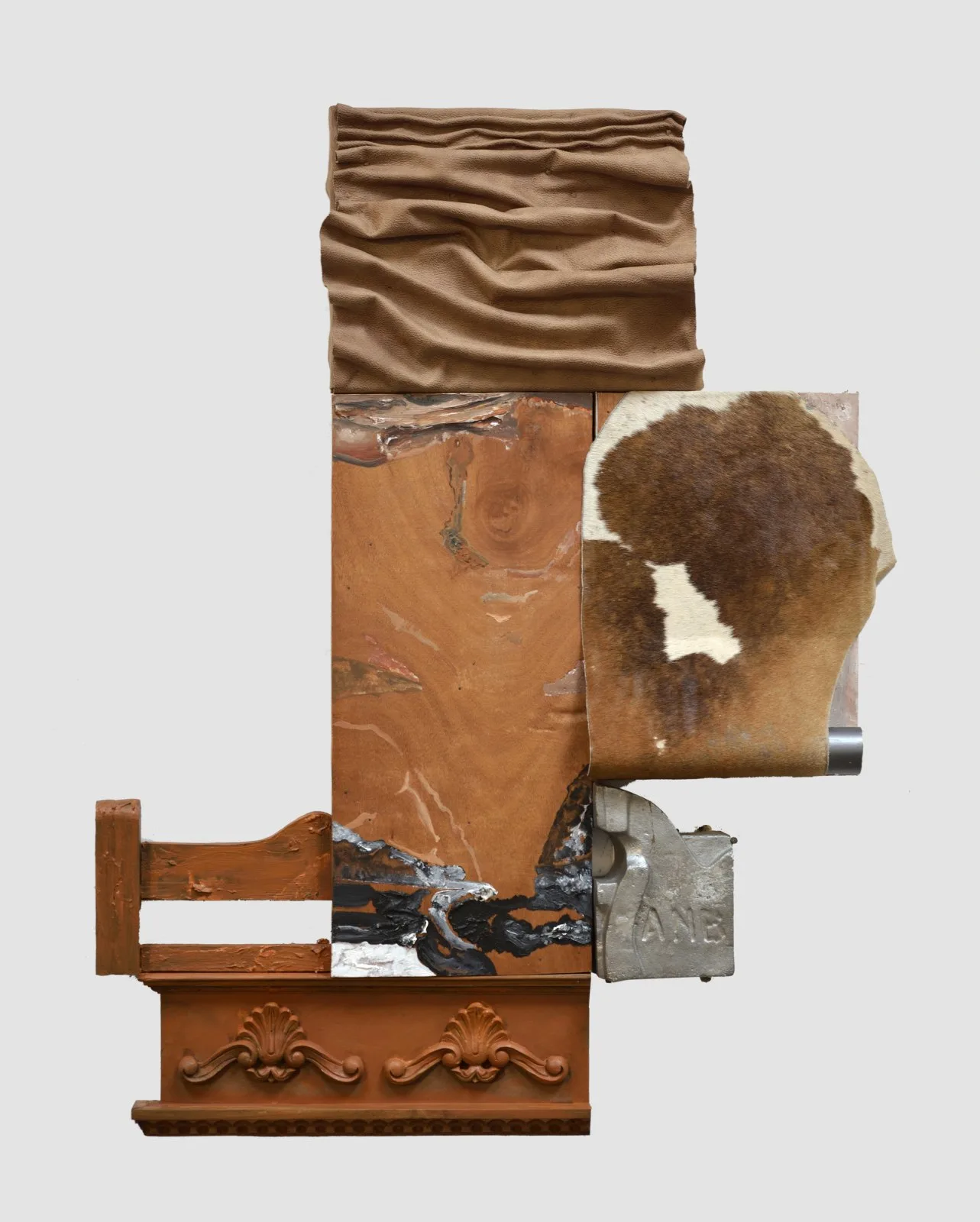
PROBIR GUPTA, Agitated Dunes, 2024, leather, wood, metal, acrylic, and oxides on wood, 244 × 305 cm. Courtesy Anant Art Gallery, New Delhi.
Jan 31–Feb 11
Probir Gupta
Migrants in the Museum
Anant Art Gallery
For “Migrants in the Museum,” a solo show by Indian artist and activist Probir Gupta, Anant Art Gallery presents an extensive array of works across various media that explore themes of migration, memory, and dislocation. Alongside recent paintings and installations, the exhibition features large-scale sculptures—such as Agitated Dunes (2024)—which probe historical narratives and underline the humanitarian concerns of the modern world.
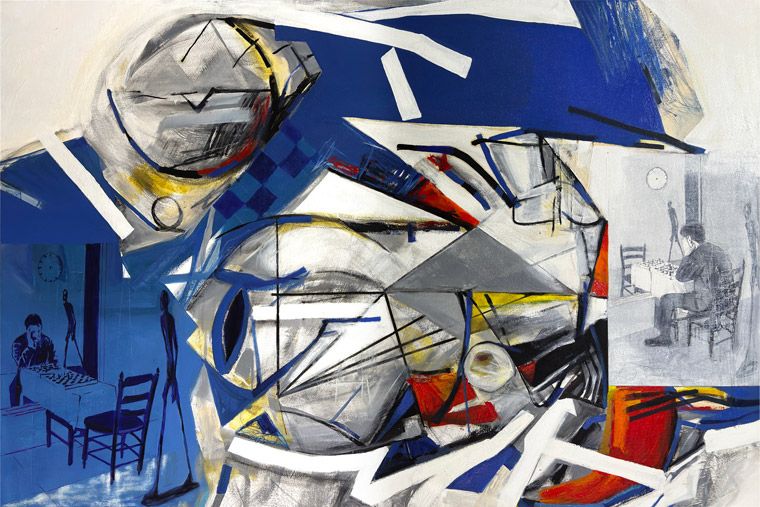
RATNADEEP GOPAL ADIVREKAR, I Remember You From Tomorrow-111, oil on canvas, 91 × 137 cm. Courtesy Dhoomimal Art Centre, New Delhi.
Feb 4–28
Ratnadeep Adivrekar
I remember you from tomorrow
Dhoomimal Art Centre
At Dhoomimal Art Centre, Mumbai-born artist Ratnadeep Adibrekar’s solo exhibition “I remember you from tomorrow” showcases a series of oil and mixed media paintings that explore the spatiotemporal planes of memory. Throughout these works, Adibrekar investigates our mutable perception of time by merging abstract and figurative forms which reflect our fragmented understanding of the past and the future.







